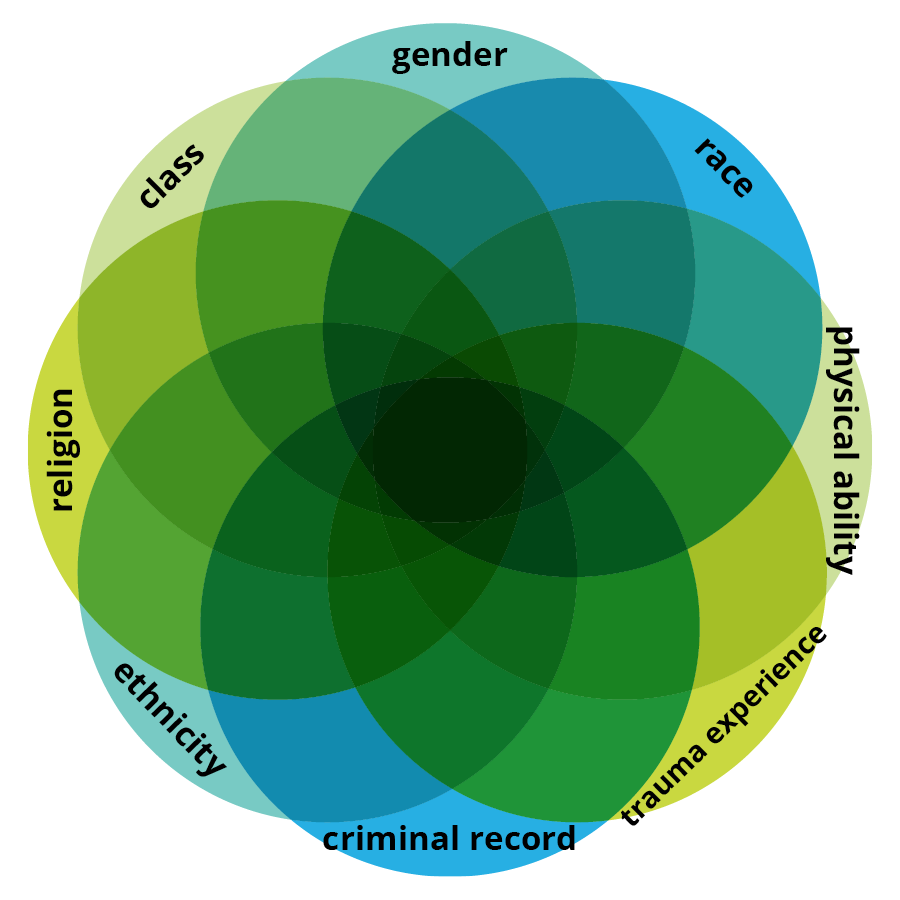May 29, 2020
A statement on police brutality.
Dear Partners and Friends,
The Center for Survivor Agency and Justice is outraged and heartbroken by the murder of George Floyd on May 25th, 2020. We offer our deep condolences to Mr. Floyd’s family, to the entire Black community, and to all who are and will continue to be impacted by this trauma, now and for many years to come. George Floyd’s murder is yet another example of how white supremacy in the US systemically endangers the lives of Black bodies and communities. It highlights the way in which systemic and institutionalized racism inflicts violence on Black lives each and every day.
We must say their names: George Floyd, Tony McDade, Ahmaud Arbery, Breonna Taylor, Eric Garner, Sandra Bland, Tamir Rice, Philando Castile, Trayvon Martin. The list goes on.
Floyd’s murder is part of a long legacy of white supremacy in the United States, conceived at the time of colonization, codified with the slave trade, and baked into our institutions and laws from our nation’s founding to the present day. Violence against African Americans is a central part of our history and current day reality, and as such it will not be cured without collective action that gets at the root of the problem: racial and economic inequity.
The Center for Survivor Agency and Justice envisions a world where all people have equal access to physical safety, economic security, and human dignity.
We cannot address domestic and sexual violence without acknowleding the role that state sponsored violence plays in perpetuating inequity. We at CSAJ are reflecting on the following questions. We encourage you to do the same. Aspiring-allies are called, not only to reflect and learn, but also to act.
- How does systemic, racialized police violence harm survivors of color? What does safety look like for survivors of color when those responsible for protecting the citizenry are themselves violent, and oftentimes lethal?
- What is the work that non-Black advocates must do – as individuals and as organizations? What conversations must we have? What are we amplifying? And how can we support the voices of marginalized communities?
- How do we examine and undo the harm we ourselves perpetuate and in which we are complicit?
- How do we support, listen to, and follow the lead of Black survivors and organizations?Intersectional oppression wields power over all Black bodies, especially Black women, LGBTQIA+ folks, and those with disabilities. We often hear that “one in three women will experience domestic violence during their lifetime,” however the rate is disproportionately higher for women of color, especially Black women, for whom the average is one in two. For Black survivors, state violence contributes to and enables domestic and sexual violence. Black women survivors justifiably mistrust the criminal justice system and are therefore less able to gain protection in situations of intimate partner and sexual violence. In New York City, 66% of women of color who identify as survivors are arrested after calling the police for domestic violence-related issues.Systemic police brutality against the Black community jeopardizes the economic safety of survivors, depleting Black survivors of resources, increasing their vulnerability to poverty and future violence, while negatively impacting their physical, mental, and spiritual wellbeing. The trauma of police brutality subjects survivors of color to health impacts that have economic ripple effects across the lifespan.We must ensure that the work we do and the conversations we have, are intersectional and that they amplify and support the voices of marginalized communities. Economic justice cannot be achieved without centering race. Recognizing our positionality, CSAJ would like to highlight Black and Black-femme led organizations that engage in anti-racist justice work alongside Black survivors:
- Women of Color Network, Inc (WOCN): a national grassroots initiative dedicated to eliminating violence against all women and their communities by centralizing the voices and promoting the leadership of women of color across the Sovereign Nations, the United States and U.S. Territories.
- Black Women’s Blueprint: a transnational Black feminist organization that provides a framework for the liberation of Black women from oppressive institutions.
- African American Policy Forum: an innovative think tank that connects academics, activists and policy-makers to promote efforts to dismantle structural inequality. AAPF is dedicated to advancing and expanding racial justice, gender equality, and the indivisibility of all human rights, both in the U.S. and internationally.
- Ujima, Inc: The National Center on Violence Against Women in the Black Community serves as a national, culturally-specific services issue resource center to provide support to and be a voice for the Black Community in response to domestic, sexual and community violence. Ujima was founded in response to a need for an active approach to ending domestic, sexual and community violence in the Black community.At this time, it is imperative that we meaningfully act as allies, advocates, and individuals. As each of us examines our privilege and our power, we must continually educate ourselves and listen to Black voices, so that we may move closer to a culture free of anti-Black racism and violence.In solidarity, CSAJ Team
Donate to local community-led organizations that have been doing race equity work for a long time, as well as fundraisers that will ensure that your money directly supports Floyd’s family and others similarly impacted by police violence and overcriminalization:
- The Minnesota Freedom Fund **Please no more donations, but do visit their website to learn more. Donate to a state/local bail or police reform coalition near you.
- Black Visions Collective
- The George Floyd Memorial Fund
- Reclaim the Block
- Campaign Zero
- Unicorn Riot
Readings:
- White Privilege: Unpacking the Invisible Knapsack by Peggy McIntosh
- Mapping the Margins: Intersectionality, Identity Politics, and Violence Against Women of Color by Kimberle Crenshaw
- When Truth & Justice is Not Enough: Report to the Black Women’s Truth and Reconciliation Commission, Black Women’s Blueprint
- 75 Things White People Can Do For Racial Justice
- Showing Up For Racial Justice Education Toolkit
- Black Feminist Thought by Patricia Hill Collins
- Compelled to Crime: The Gender Entrapment of Battered Black Women, by Beth E. Richie
- Dark End of the Street by Danielle L. McGuire
- How To Be Antiracist by Ibram X. Kendi
- Me and White Supremacy by Layla F. Saad
Tools & Resources for Advocates and/or Organizations:
- Gaining Ground, Breaking Through, (for advocates of color, for aspiring allies), by Women of Color Network, Inc.
- Constructing a Racial Equity Theory of Change: A Practical Guide for Designing Strategies to Close Chronic Racial Outcome Gaps, by Aspen Institute & Racial Equity Tools
- Other tools & guides from: Racial Equity Tools & Race Forward
- The 2017 State of Science: Implicit Bias Review, by The Kirwan Institute for the Study of Race and Ethnicity
More Organizations (on Instagram):
- Audre Lord Project @audrelordproject
- Color of Change @colorofchange
- Colorlines @colorlinesnews
- Equal Justice Initiative @eji_org
- NAACP @naacp
- RAICES @raicestexas
- The Conscious Kid @theconciouskid
- Showing Up For Racial Justice (SURJ) @showingupforracialjustice
- Women of Color Network, Inc. @wocn
Therapy on Instagram:
- Ayana Therapy @ayana_therapy
- Black Women’s Health Imperative @blkwomenshealth
- Dr. Jennifer Mullan @decolonizingtherapy
- Therapy for Black Girls @therapyforblackgirlsREFERENCES:Alang, S., McAlpine, D., McCreedy, E., & Hardeman, R. (2017). Police Brutality and BlackHealth: Setting the Agenda for Public Health Scholars. American Journal of Public Health, 107(5), 662–665. https://doi.org/10.2105/AJPH.2017.303691Crossroads Ministry, Chicago, IL: Adapted from original concept by Bailey Jackson and Rita Hardiman, and further developed by Andrea Avazian and Ronice Branding; further adapted by Melia LaCour, PSESD.https://incite-national.org/wp-content/uploads/2018/08/toolkitrev-domesticviolence.pdf














